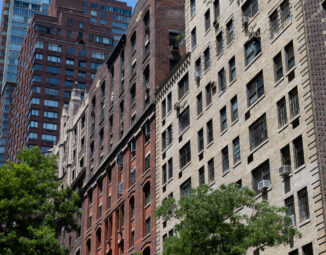Don’t Overlook the Importance Of HVAC Language In Your Commercial Lease
Why are HVAC provisions important in a commercial lease?
The repair, maintenance and replacement of an HVAC system can be very costly. It is not uncommon for a dispute to arise regarding a problematic HVAC after a commercial lease is executed. It is therefore important to clearly define the obligations of each party during the negotiation stage of the lease.
What are some of the factors that determine who should pay for the HVAC system in the lease?
- Whether the system exclusively serves one tenant
- Which party installed the HVAC system
- When the system was installed (i.e., whether it is new at the beginning of the lease term)
If the HVAC system exclusively serves one tenant, who bears the responsibility?
The first thing we need to look at is the condition of the HVAC system at the commencement of the lease term and who installed the unit.
What if the tenant installed the system?
The obligation to repair, maintain and replace should fall on the tenant’s shoulders.
And if the landlord installed the system?
The repair and replacement of a new system installed by the landlord is generally the landlord’s responsibility.
What if the system is old?
In that case the parties should have the HVAC inspected before the lease is signed to determine the condition of the unit and its anticipated useful life. If it is determined that the system is not in good condition, either the landlord should bear responsibility for repair and replacement or the parties should agree on an annual tenant cap should the need to repair or replace arise.
If the HVAC system is exclusively serving one tenant, who maintains the unit?
Regardless of whether the unit is new or used, it is market for a landlord to require the tenant, at the tenant’s cost, to maintain a contract with a reputable HVAC service provider for semiannual or quarterly maintenance checks. The tenant should be required to provide the landlord with evidence of the service calls and to submit maintenance reports as to the condition of the system.
Additionally, and despite the original condition of the system, it is important to include in the commercial lease, verbiage that the landlord will not be responsible for any costs to the system resulting from the negligence or breach of the lease by the tenant. So, if the tenant fails to regularly change the filters or fails to have the system inspected on a regular basis, and a problem occurs, any repair should be on the tenant’s dime.
So, if the tenant regularly maintains the unit and it was the landlord who installed the unit, who pays if a replacement is needed?
Although the landlord would generally be responsible to pay, I would want to include language requiring the tenant to contribute a reasonable and fair portion of such costs during the remainder of its lease term.
What if the HVAC does not exclusively serve one tenant?
The landlord should pay for all HVAC costs including the maintenance contract, but in this instance, the landlord would pass those costs through to the tenant as an operating expense based upon the tenant’s proportionate share of the building.
Finally, how can a well drafted lease agreement benefit the landlord?
A well drafted lease agreement, specifically with regard to an HVAC system will (1) protect a landlord’s investment in its property, (2) control costs for an expensive system, and (3) reduce any future landlord liability.
Pauline Markey provided the questions for this article.
The information contained in this publication should not be construed as legal advice, is not a substitute for legal counsel, and should not be relied on as such. For legal advice or answers to specific questions, please contact one of our attorneys.



